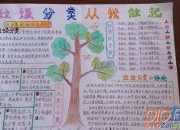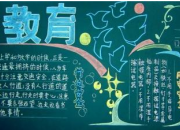高一情态动词练习题的内容
时间:2021-08-31高一情态动词练习题的内容
篇一:【高一】情态动词练习
高中英语必修三 第一单元 情态动词练习
1.-________ I download the article again?
-No,you needn't.
A. ShallB. Will C. Must D. Can
2. -Can you go skating with us this afternoon?
-Sorry,I can't. I ________ take care of my little sister at home.
A. canB. may C. would D. have to
3. -Must I hand in my exercise book today?
-No, you ________.
A. can't B. needn't C. mustn't D. won't
4. -________I have your English name, please?
-Yes, Helen. H-E-L-E-N.
A. Must B. May C. WillD. Need
5. -Who is the boy over there? Is it John?
-No, it ________ be him. John is much taller.
A. mustn'tB. may not C. can'tD. needn't
6. -Can you play the piano, Jay?
-Yes, I ________. It's easy.
A. must B. can C. needD. may
7.-You must come back every month.
-Yes, I ________.
A. will B. mustC. shouldD. can
8. - Must we clean the room right now?
- No, you___. You ____ clean it after lunch.
A. needn't;may B. needn't;must
C. Mustn't;can D. mustn't;may
9. Children ________ play with fire.
A. mustn't B. can'tC. shouldn't D. needn't
10. -________ I come in, Mr Green?
-Yes,come in, please.
A. MustB. Need C. WillD. May
11. -Must I finish the work today?
-No, you ________. You ________ finish it tomorrow.
A. mustn't; may B. can't; can
C. needn't; may D. needn't; must
「答案与解析」
1. C.这组对话的意思是:"我必须再次下载这篇文章吗?""不必了。"该题测试情态动词的用法。根据答语 No, you needn't 就能确定要选C.
2. D.这组对话的意思是:"今天下午你能同我们一块去溜冰吗?""抱歉,我不能去。我必须在家照看我小妹妹。"该题测试情态动词的用法。表示客观上"不得不"做某事时,要用have to.
3. B.这组对话的意思是:"我必须今天交作业吗?""不必。"该题测试情态动词的用法。对以must开头的问句进行否定回答时,要用needn't.
4. B.这组对话的意思是:"我可以知道您的英文名字吗""可以,海伦。H-E-L-E-N."该题测试情态动词的用法。"请求对方许可"时,常用 May I (we)…。
5. C.这组对话的意思是:"那边的那个男生是谁?是约翰吗?""那不可能是他,约翰个子高些。"该题测试情态动词的用法。表示很肯定的否定推测时,用can't.
6. B.这组对话的意思是:"杰伊,你会弹钢琴吗?""会,小菜一碟。"该题测试情态动词的用法。一般说来,以情态动词can开头的问句,肯定回答用can;否定回答用can't.
7. A.此题易误选为B或C.这是因为受了思维定势的影响引起的,因为前面句子中的must这个词,许多人就想当然地选择了B项。其实,这里应该选择A项,句意为:"你必须每月回来一次。""好的,我会的。"
8. A.needn't表示"没有必要";may意为"可以".
9. A.考查情态动词。mustn't千万不,绝不能,一定不要;can't不能;shouldn't不应该;needn't不必要。
10. D.考查情态动词。请求允许用may或can.
11. C.考查情态动词。否定回答must,表示"不必"用needn't,排除A和B.又表示允许"可以",用may或can,所以A正确。若用must与前面needn't相矛盾。
篇二:高一英语情态动词专题训练及答案
高一英语情态动词专题训练
概 说
助动词(auxiliary)主要有两类:基本助动词(primary auxiliary)和情态助动词(modal auxiliary)。基本助动词有三个:do, have和be;情态助动词有十三个:may, might; can, could; will, would; shall, should; must, need, dare, used to, ought to. 上述两类助动词的共同特征是,在协助主动词构成限定动词词组时,具有作用词的功能: 1) 构成否定式:
He didn’t go and neither did she.
The meeting might not start until 5 o?clock. 2) 构成疑问式或附加疑问式:
Must you leave right now?
You have been learning French for 5 years, haven’t you? 3) 构成修辞倒装:
Nowhere can he obtain any information about his sister. Hardly had he arrived when she started complaining. 4) 代替限定动词词组:
A: Who can solve this crossword puzzle? B: Tom can.
A: Shall I write to him? B: Yes, do.
情态助动词的特征
基本助动词与情态助动词最主要的区别之一是,基本助动词本身没有词义,而情态助动词则有自己的词义,能表示说话人对有关动作或状态的看法,或表示主观设想:
What have you been doing since? (构成完成进行体,本身无词义) I am afraid I must be going. (一定要)
You may have read some account of the matter. (或许已经) 除此之外,情态助动词还有如下词法和句法特征:
1) 除ought和used以外,其他情态动词后面只能接不带to的不定式。如果我们把ought to
和used to看做是固定词组的话,那么,所有情态动词无一例外地只能接不带to的不定式:
We used to grow beautiful roses.
I asked if he would come and repair my television set.
2) 情态助动词在限定动词词组总总是位居第一:
They need not have been punished so severely.
3) 情态助动词用于第三人称单数现在时的时候,没有词形变化,即其词尾无-s形式:
She dare not say what she thinks.
4) 情态动词没有非限定形式,即没有不定式、-ing分词和-ed分词形式:
Still, she needn’t have run away.
5) 情态助动词的“时”的形式并不是时间区别的主要标志。在不少场合,情态助动词的现
在时和过去时形式都可以表示现在、过去或将来时间:
Would you mind very much if I ask you to do something?
She told him he ought not to have done it.
6) 情态助动词之间是相互排斥的,即在一个限定动词词组中只能出现一个情态助动词,但
有时却可以与have和be基本助动词连用:
You should have washed the wound. Well, you shouldn’t be reading a novel.
情态助动词的意义和用法
情态助动词从最普通的意义上来说,是修饰分句意义的一种方式,它可以反映说话者对其表述是否真实和可能的程度作出判断。但不同的情态助动词本身所包含的意义和用法又不同,下面逐个分析。
1) can和could的用法
1. 表示能力或客观可能性,还可以表示请求和允许。如:
Can you finish this work tonight? Man cannot live without air.
— Can I go now?— Yes, you can.
注意:①could也可表示请求,预期委婉,主要用于疑问句,不可用于肯定句,答语应用can(即could不能用于现在时态的简略答语中)。如:
Could I come to see you tomorrow?
Yes, you can. (否定答语可用No, I?m afraid not.) ②can表示能力时,还可用be able to代替。如: I?ll not be able to come this afternoon. 2. 表示惊异、怀疑、不相信的态度。(主要用在否定句、疑问句或惊叹句中)
Can this be true?
How can you be so careless! This cannot be done by him.
3. “can(could) + have + 过去分词”的疑问或否定形式表示对过去发生的行为怀疑或
不肯定。如:
He cannot have been to that town. Can he have got the book?
2) may和might的用法
1. 表示许可。
表示请求、允许时,might比many的语气更委婉一些,否定回答时要用mustn?t表示“不可以”、“禁止”、“阻止”之意。如: You may drive the car.
— Might I use your pen?— No, you mustn’t.
用May I ... 征询对方许可在文体上比较正式,在口气上比较客气。在日常口语中,用Can I ... 征询对方意见在现代口语中更为常见。 2. 用于祈使句中表示祝愿。如:
May you succeed!
3. 表示推测、可能(疑问句不能用于此意)。
He may be very busy now.
4. “may(might) + have + 过去分词”表示对过去发生的行为的推测。如:
He may not have finished the work.
3) must和have to的用法
1. 表示必须、必要。如:
You must come in time.
回答must引出的问句时,如果是否定的回答,不能用mustn?t,而要用needn?t或don?t have to。
— Must we hand in our exercise books today? — Yes, you must. (No, you don?t have to.)
2. “must be + 表语”的结构表示推测,它的否定或疑问式用can代替must。 This must be your pen.
3. “must + have + 过去分词”的结构常用在肯定句中,表示对过去发生的行为的推测。
它的否定或疑问式用can代替must。 He must have been to Shanghai. 4. have to的含义与must相似,两者往往可以互换使用,但have to有各种形式,随have
的变化而定。must与have to有下列几点不同:
① must表示的是说话人的主观看法,而have to则往往强调客观需要。如:
The play is not interesting. I really must go now. I had to work when I was your age.
② must一般只表现在,have则有更多的时态形式。 ③ 二者的否定意义不大相同。如:
You mustn’t go. 你可不要去。 You don’t have to go. 你不必去。 ④ 询问对方的意愿时应用must。如:
Must I clean all the room?
4) dare和need的用法
1. need表示“需要”或“必须”,作情态动词时,仅用于否定句或疑问句中,在肯定
句中一般用must, have to, ought to,或should代替。如: You needn’t come so early.
— Need I finish the work today? — Yes, you must.
注意:needn?t + 不定式的完成式“表示本来不必做某事而实际上做了某事”。如: You needn’t have waited for me. 2. Dare作情态动词时,主要用于疑问句、否定句和条件从句中,一般不用在肯定句中。
如:
How dare you say I?m unfair.
He daren’t speak English before such a crowd, dare he?
3. Dare和need常用作实义动词,有时态、人称和数的变化,所不同的.是,作实义动
词时,在肯定句中,dare后面通常接带to的不定式,在否定和疑问句中,dare后面可接带to或不带to的不定式。如: I dare to swim across this river. He does not dare (to) answer. Don?t you dare (to) touch it! I wondered he dare (to) say that. He needs to finish it this evening.
5) shall和should的用法
1. Shall用于第一人称,表示征求对方的意愿。如:
What shall we do this evening? 2. Shall用于第一、第三人称疑问句中,表示说话人征求对方的意见或向对方请示。如:
Shall we begin our lesson?
When shall he be able to leave the hospital?
3. Shall用于第二、第三人称,表示说话人给对方命令、警告、允诺或威胁。如:
You shall fail if you don?t work harder. (警告)
He shall have the book when I finish reading. (允诺) He shall be punished. (威胁)
4. Should表示劝告、建议、命令,其同义词是ought to;在疑问句中,通常用should
代替ought to。如:
You should go to class right away. Should I open the window?
Should的含义较多,用法较活,现介绍三种其特殊用法。请看下面的句子: ① I should think it would be better to try it again. 我倒是认为最好再试一试。 ② You are mistaken, I should say. 依我看,你是搞错了。 ③ I should advise you not to do that. 我倒是劝你别这样做。
④ This is something I should have liked to ask you. 这是我本来想问你的。
从以上例句可以看出:情态动词should用于第一人称时可以表示说话人的一种谦逊、客气、委婉的语气。
Should还可以用在if引导的条件从句,表示一件事听起来可能性很小,但也不是完
全没有可能。相当于“万一”的意思。从句谓语由should加动词原形构成,主句谓语却不一定用虚拟语气。如:
⑤ Ask her to ring me up if you should see her. 你万一见到她,请让她给我打个电话。 ⑥ If you should change your mind, please let us know. 万一你改变主意,请通知我
们。
⑦ Should I (If I should) be free tomorrow I will come. 万一我明天有时间,我就来。 此外,Why(or How) + should结构表示说话人对某事不能理解,感到意外、惊异等意思。意为“竟会”。如:
⑧ Why should you be so late today? 你几天怎么来得这么晚? ⑨ — Where is Betty living? — 贝蒂住在哪里? — How should I know? — 我怎么会知道呢?
⑩ I don?t know why you should think that I did it. 我真不知道你凭什么认为这件事
是我干的。
5. “should + have + 过去分词”结构一般表示义务,表示应该做到而实际上没有做到,
并包含一种埋怨、责备的口气。如: She should have finished it.
I should have helped her, but I never could. You should have started earlier.
6) will和would的用法
1. 表示请求、建议等,would比will委婉客气。如:
Would you pass me the book? 2. 表示意志、愿望和决心。如:
I will never do that again.
They asked if we would do that again.
3. 用“will be”和“will(would) + have + 过去分词”的结构表示推测,主要用于第二、
三人称。前者表示对目前情况的推测,后者表示对已经完成的动作或事态的推测。如:
This will be the book you want. He will have arrived by now.
The guests would have arrived by that time. I thought you would have finished this by now. 4. Would可表示过去反复发生的动作或某中倾向。Would表过去习惯时比used to正式,
并没有“现已无此习惯”的含义。如: The wound would not heal.
During the vacation he would visit me every week. 5. 表料想或猜想。如:
It would be about ten when he left home. What would she be doing there?
I thought he would have told you all about it.
7) ought to的用法
1. Ought to表示应该。如:











